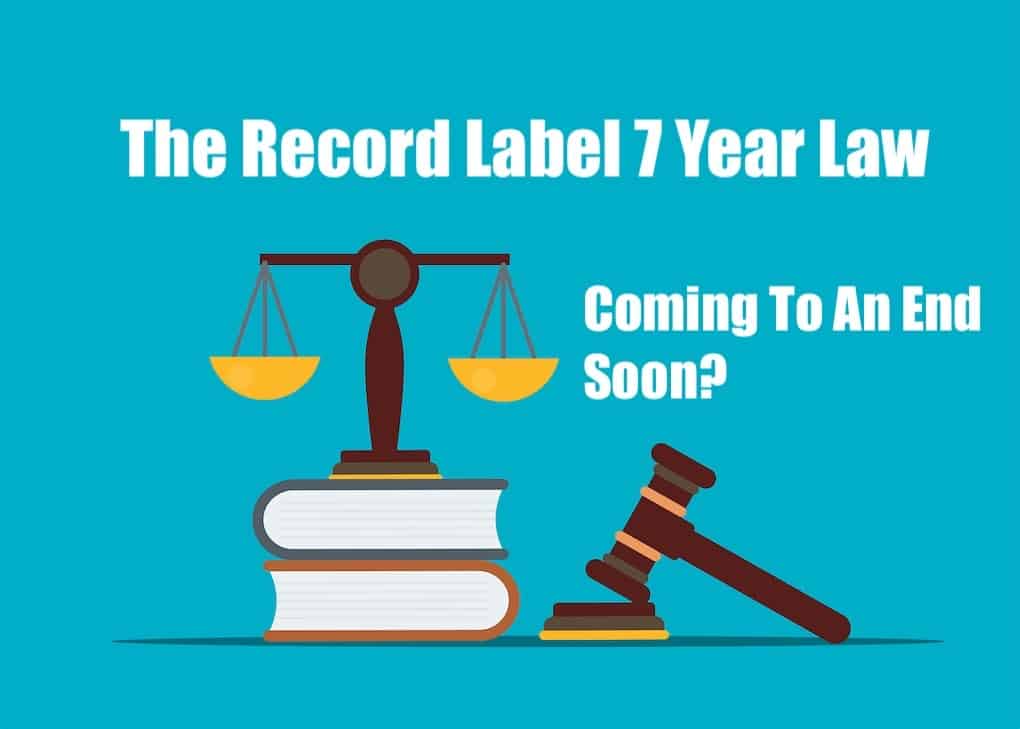Record labels’ 7 year law may be coming to an end
Record labels can currently keep artists signed for up to 7 years even when they are not allowing them, to release recoirds,. However, that may be changing soon…
by Bobby Owsinski of Music 3.0.
If you ever signed a deal with a record label based in California and took a good long look at the contract you were probably surprised to see that, if the label so desired, you were stuck with the label for at least 7 years and probably more if the label desired. The labels argued that since there were a lot of up front development costs in the artist, it took that long to recoup their investment. While that may have been true back in the days when CDs and vinyl ruled, that certainly doesn’t apply today, and a new California law takes a different look at the 7 year law to determine if it’s reasonable or not.

De Havilland Law
Without getting into too many legal technicalities (I’m not an attorney, it should be noted), the law actually came about back in 1943 when film actress Olivia De Havilland sued Warner Brothers for what she considered an excessive interpretation of the previous 7 year law that most film actors signed as part of their contracts with their film studios.
The studios considered an actor under contract for only the days worked, so that meant a total of 2,555 days instead of 7 calendar years. It was a victory of sorts as it was better than the previous interpretation, but still not that great in terms of an actor’s (or music artist’s) ability to switch studios for a better deal.
It’s Worse In Music
When it comes to music though, it was even worse. The recording industry managed to be exempted from the rule in 1987, which meant that labels can sign artists to multi-album deals that can extend well past the seven years.
Depending on the contract and how many albums and options were specified, that meant that you could be signed to that label for your entire career, or at least until the label didn’t want you any more.
Once again, the labels claimed that since they were spending a lot of development money up front, so they needed the time on the back end to recoup the costs and maybe finally make some money.
The problem is that’s not the way the music business works anymore. Labels search for artists and bands that already have some success and infrastructure in place. In many cases the artists are so self-contained that they don’t even want many of the services that a label provides. That means that the costs are so much lower on the front end for a label these days.
The California Fair Act
As a result, a coalition of trade groups that include SAG-AFTRA, Music Artists Coalition, the Black Music Action Coalition, California Labor Federation and Songwriters of North America have helped craft legislation known as Assembly Bill 2926 (also known as the California Fair Act). It was introduced on Feb. 22 by California Assembly Member Ash Kalra and calls for more reasonable time limits in record company agreements, and gives the talent the ability to terminate a personal services agreement once the time limit has been reached.
This is a giant step in the right direction, but probably won’t affect all but a few acts. Acts that don’t earn their keep are soon dropped by labels, and superstars can afford a battery of specialized attorneys that can renegotiate the deal. That said, it will be a godsend for those few acts that fall in the middle and can’t see the light of day out of their deal.
The way the music business works today is so different from the way it was for years and years before the turn of the century, yet many of the laws governing how business is done have not yet caught up. Thankfully the California Fair Act is a step in the right direction of finally curbing the 7 year law.
Bobby Owsinski is a producer/engineer, author and coach. He has authored 24 books on recording, music, the music business and social media.
Read more: https://music3point0.com/2022/04/29/the-record-label-7-year-law-may-soon-come-to-an-end/#ixzz7Rvt8Lyx7
Under Creative Commons License: Attribution Non-Commercial Share Alikeial Share Alike